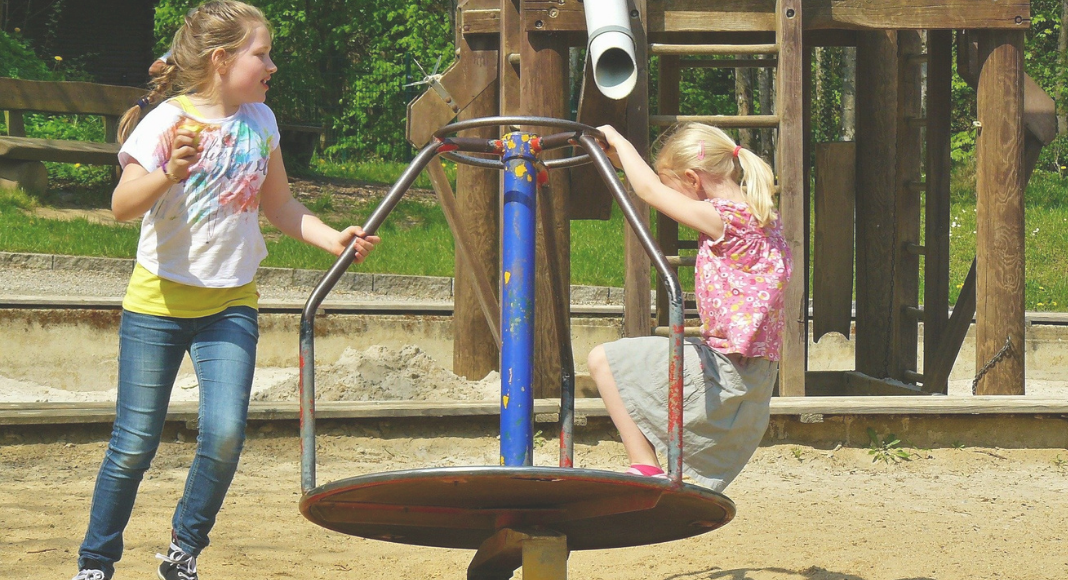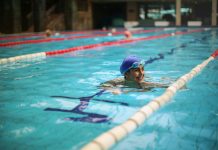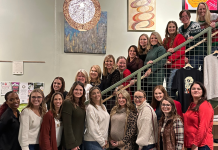
Spring is almost here and the warm temperatures are luring all of us outside after the long, depressing winter. Parks will soon be packed with a wide age range of kids looking to burn off energy from all the months cooped up. Moms and Dads alike can look forward to scheduling park playdates where the kids stay happily occupied while the grownups snatch a few minutes of stimulating, adult conversation.
But please, I’m asking us all to agree on one thing before park season commences. Can we not release the kids entirely to the wilds of their own devices, letting the law of the jungle prevail?
Maybe it’s because my two oldest are back in school full time and I’m now accompanied by only one toddler again, but I feel like lately every park experience we’ve had has involved an almost entirely unsupervised child or children invading my three-year-old’s space, making her uncomfortable, or refusing to share communal park equipment. In one instance, a group of tween kids had ridden their bikes to a neighborhood park and were using their newfound freedom to holler obscenities and slurs at each other in front of all the tinies trying to use the slide. In another, a group of moms stood chatting with each other for well over 30 minutes while their kids monopolized the only swing at the park and my kids hovered nearby, obviously waiting patiently (and then not so patiently) for a turn.
I too have used the park as a relatively safe space to turn my kids loose and have a moment’s peace to talk with a friend or check my email. We’ve all been shut in and acting as teachers, activity directors, mediators, personal chefs, etc. for far too long these last couple years. But that “relatively safe space” becomes a lot less so when kids of all ages are thrown together and expected to get along with little to no adult oversight.
We all hope our kids are going to watch out for younger ones, take turns in a fair way and solve disagreements without physical altercation. But, they’re also still kids. They forget the things they’ve been told; they get caught up in the games they’re playing; they have trouble regulating their emotions. They can’t be expected to behave perfectly at all times and they’re going to need just as much, if not more, redirection while at the park as they might during a home playdate.
It isn’t fair to the kids being told they need to slide down the slide and move out of the way so someone else can take their turn when that next kid turns right around and climbs back up to take a second turn. Just because a kid is bigger and impatient doesn’t mean they ought to be able to shove past a little new walker who’s putting all their concentration into climbing the steps without falling. Just because a kid got to a swing before anyone else shouldn’t mean they are allowed to dominate a piece of equipment others are waiting for a turn on. And when parents are all the way across the park without a direct line of sight to their big kids, more often than not, the kids are operating on a survival of the fittest mentality.
This doesn’t even begin to touch on how mothers of neurodivergent kids must feel. These children often need their parents to advocate for them even more in social situations. It is extremely difficult to walk the line of helping your child protect their boundaries without seeming to be reprimanding or redirecting someone else’s kid. It is the responsibility of all parents to be aware enough of how their kid is interacting with others on the playground to be able to jump in when needed.


















